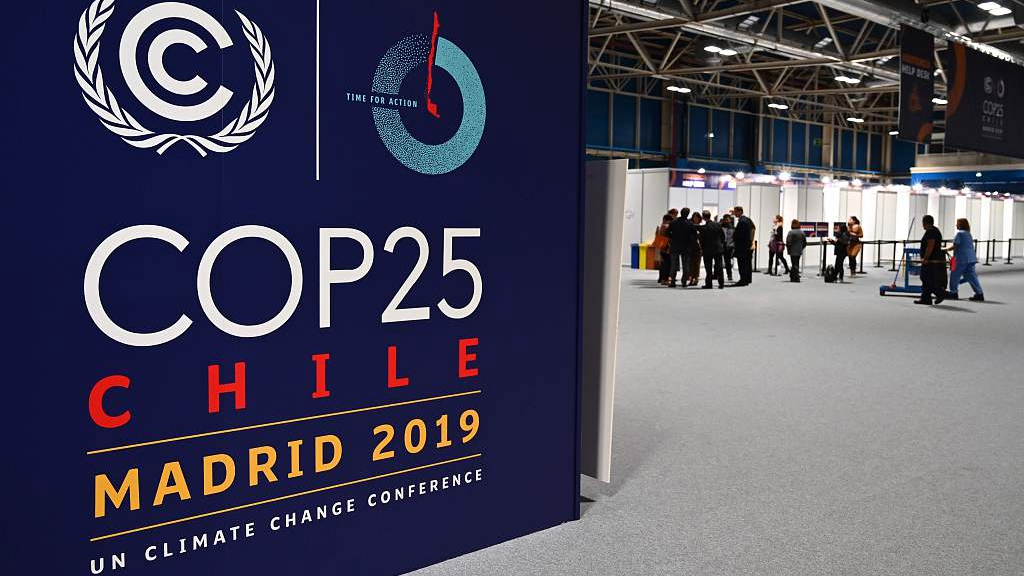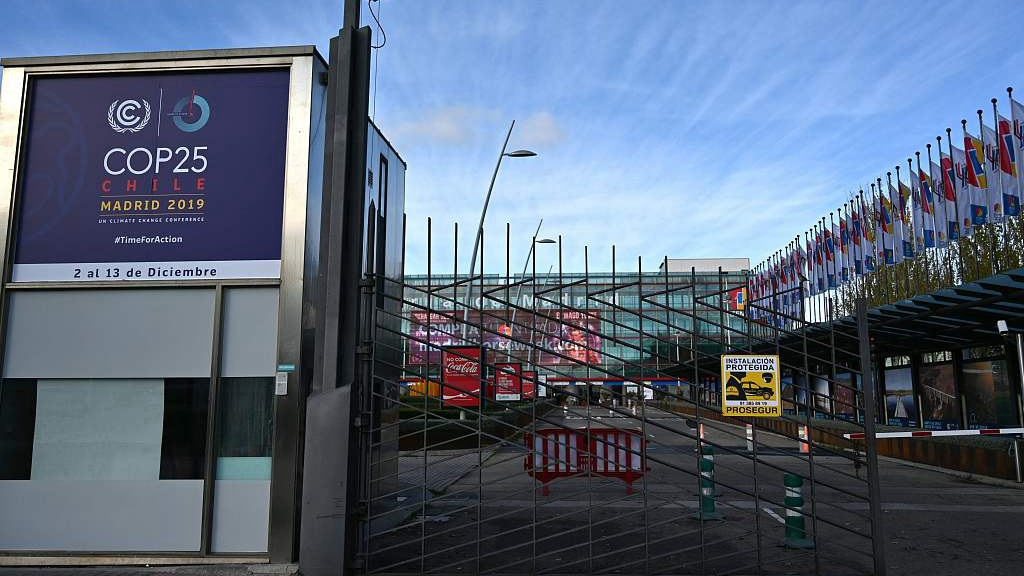01:02

In the run-up to this year's UN Climate Change Conference expected to be attended by nearly 200 nations in Madrid, Spain, the UN officials have delivered a dire warning: Despite lofty promises, carbon emissions continue to grow and may make the planet even hotter than expected.
Wu Changhua, executive director of the Professional Association for China's Environment, emphasizes that businesses have a big role to play in curbing climate change, which involves pricing carbon and internalizing the risks of climate change into the financial sectors.
Meanwhile, Dr. Bruce McGee, founder of the McMillan-McGee Corp, says it is difficult to act with technical innovation and urge people and businesses to come up with solutions to deal with the pollution. Policy has to come together in a way that enables an active agenda, he stresses.
Wu mentions the 16-year-old Swedish girl Greta Thunberg, a climate activist who is awakening the youth to demand a change in tackling environmental challenges. Wu adds that it is necessary to put pressure on the governments as their actions are not really catching up with what needs to be done.
With the Madrid summit around the corner, is it too late to challenge the goals this time, such as asking for deeper cuts, ramping up the pledges and focusing on Paris Agreements 2015?
"It's going to be a very difficult process. You do not expect magic happens just within a couple of weeks," Wu said, adding it is necessary for leaders to have a serious conversation on the issues given the sense of urgency.
She hopes the sense of urgency can somehow be recognized by the negotiators in the next two weeks in Madrid, so they can up their commitments.
All eyes are now on China as the U.S. is pulling out of its commitment and abandoning the accord.
The Chinese government has already committed to the Paris Agreement. According to Wu, China is expected to overachieve carbon intensity target by cutting its emissions by 60 to 65 percent in the next decade. China is on the track to acquiring renewable energy installations, she adds.
Major tasks to tackle climate change
This week, China's SCIO released an annual report, titled "China's Policies and Actions for Addressing Climate Change," which features a new section about public health.
Wu says it is an important addition to the national strategies for a long time and it would be mostly focusing on education and improving energy efficiency to reduce emissions. The healthcare system needs to be improved to ensure the country's system responds effectively when relevant measures are taken, she adds.
Government's role in developing technology
Commenting on the countries political will to fight climate change, Wu says that although countries have committed to provide financial support to developing countries per the Paris Agreement 2015, leading up to 102 billion dollars per year by 2020, no one knows where the money is. The governments are under increasing pressure due to slow global economic growth as the money they give out has to be public funding and taxpayers' money, she adds.
Given the lack of incentive in this scenario, it is difficult for all sides to commit, Wu says, adding that a major task of the Madrid COP is to solicit these commitments.
01:26

Another challenge is population control as lots of people on this planet are burning carbon, says McGee. "To be able to advance the environmental agenda that we work with, [in the field of] groundwater and soil, we have to present and use proven technology that actually works," he said. However, it is difficult to get such technology deployed as there isn't sufficient funding from the governments, he adds.
McGee also believes that law regulations and policy incentives are playing an important role in technology industry.
"If they come up with environmental policies with enforcement where they say you have to clean this up by this certain time, or you're going to be fine penalized or criminalized, and that puts a huge motivation on industry and government for technology to act."
02:13

Dialogue with Yang Rui is a prime time daily English talk show on CGTN. The 30-minute talk show covers a wide range of domestic and international topics, providing a balanced and critical perspective on current affairs and analysis within the framework of cross-cultural and multi-disciplinary comparisons.
Schedule: Monday-Sunday
Time (GMT): 0330, 1130, 1930
(If you want to contribute and have specific expertise, please contact us at opinions@cgtn.com.)